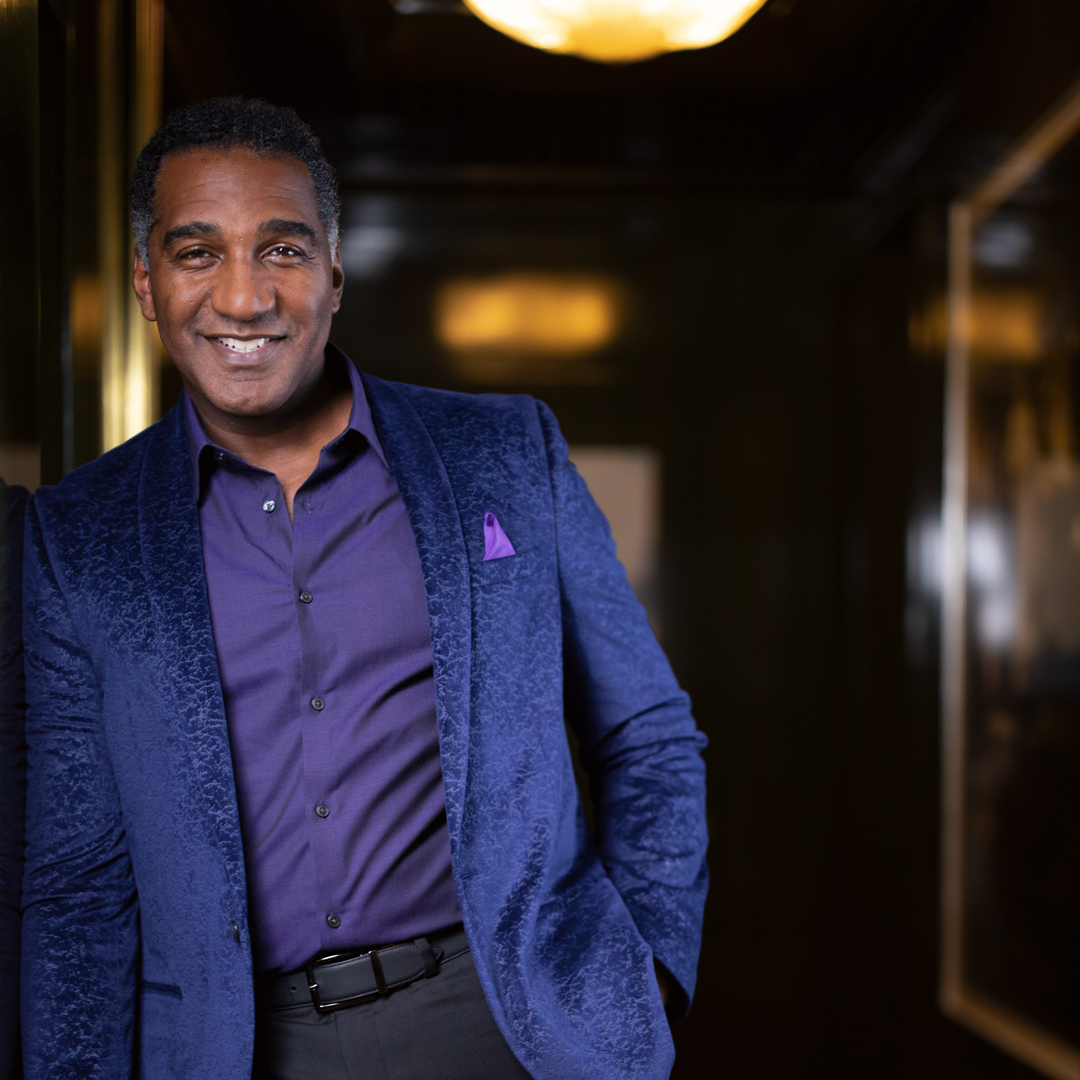posted by Kori Hill ON
Nov 09, 2021

It's hard to talk with Norm Lewis and not smile. He is ebullient and affable, exuding the charm and good will you'd expect from his holiday shows — and the antithesis of some of his most iconic roles: The Phantom from "The Phantom of the Opera;"
Javert from "Les Misérables;" Edison Davis, boyfriend to Olivia Pope, on "Scandal;" and Eddie in the Spike Lee joint, "Da 5 Bloods" (2020).
Norm Lewis' "Naughty and Nice" arrives at the Aronoff Center on December 3-4, part of the return of ArtsWave's series, Flow, An African American Arts Experience. In addition to his popular holiday show at Feinstein's/54 Below in New York
City, Lewis is bringing the Queen City a special Yuletide gift: a song line-up unique from his other performances in the U.S. this year.
Lewis was drawn to Flow
's
end goal: cultivating a diverse and culturally adventurous audience through programming of artists of color. "When I'm invited to something, I look into it, and if it involves inclusion, I'm all in," he says. "Remember, I came into the business a**backward,
because I didn't know that I wasn't supposed to be in the room. You tell me that — I don’t want to tell myself no; I want you to tell me no."
Raised in Eatonville, Florida, one of the oldest all-Black municipalities in the United States, Norm Lewis studied business, entering amateur voice contests on the side. After persistent urging from family and friends, Lewis got his first professional music job on a cruise ship, the beginning of a journey toward Broadway.
Fast forward to 2020, when Lewis co-founded the nonprofit Black Theatre United (BTU) with Audra McDonald, LaChanze, Anna Deavere Smith, Wendell Pierce, Brian Stokes Mitchell and other major Black figures of stage and screen. BTU was born out of talks between the "old guard" and new generations about police brutality in America, which led to observations about racial inequity in the theater industry.
"The pandemic made people around the world focus on certain situations here," Lewis explains, "especially Breonna Taylor, Ahmaud Arbery, and George Floyd. This has been happening for so long, but for some reason that month was the month that people felt, 'Oh my god, you’ve been saying this for so long, now we can see it.' So that filtered into: 'What can we do communally, what can we do societally [in theater]?' Having someone who can deal with Black hair at the show, it's a minor thing but a
huge thing. There is only one person of color in sound on Broadway who happens to be a Black woman. On Broadway! That’s kind of sad. There might be someone who is interested in sound but doesn't know there's an opportunity there. We want those opportunities to be available to you, so we're trying to be that voice."
Lewis is keenly aware of his role in expanding professional opportunities for Black and Brown artists. In 2014, his run as The Phantom marked the first time a Black performer portrayed the character on Broadway — and the second time a Black performer was cast in the role. In 1990, Robert Guillaume succeeded Michael Crawford as The Phantom in the musical's LA production. Lewis first saw the show in 1994, immediately connecting with the musical and the role of The Phantom.
Twenty years later, a close friend of Lewis was coming to the end of his run as The Phantom, opening an opportunity to audition. He remembers, "We're on the actual stage in front of the great [producer] Hal Prince and a few other creatives...and before I go out there, I hear — this sounds weird — but I hear living legends, and legends that have passed on, saying 'Go for it. Go get this.' I left it on the stage and a couple days later I found out I got the role."
The role garnered him major publicity and set a precedent. "I got all these accolades. I was 'Person of the Week' and all this stuff, but it was bigger than me. People would come up to me from India, China, Brazil, people of color, saying, 'Now I feel like I can do this.' So, if I can be the key that opens that door, then I take that on."
Lewis and BTU's vision of an equitable Broadway aligns with
Flow's own mission: building a multi-cultural arts community, expanding opportunities for Black, Indigenous and professionals of color, and inspiring future generations by centering diverse perspectives. Such vision requires bringing in people who have been purposely or passively excluded from certain venues, on and off the stage.
"I went to visit a friend of mine in 'The Color Purple,' and for the first time in my life — in New York — I saw nothing but Black people walk out of a Broadway theater. I had never seen that before. There were busloads from Texas, from Atlanta, Georgia, busloads from Iowa coming to the show. Once people see themselves represented, you'll find somebody that will gravitate toward that. You've got to let them know."
Through his artistry and activism Lewis shows that, to build and sustain creative vibrancy and equitable practice, you must expand your knowledge and imagination. Diverse shows bring a diverse audience.
"In casting, if someone Black comes into the room and it's a very universal sort of show, why not have that person be considered? I got to play 'The Music Man' in D.C. Why not? I have the talent, the wherewithal, the charm; why not let someone like me have that opportunity?"
"Norm Lewis: Naughty and Nice" comes to the Aronoff Center December 3-4. Tickets are available at
artswave.org/norm.